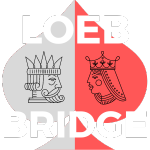The only authorized way to communicate with your partner is with your bids and the cards you play. When your opponents make a skip bid there is risk that the tempo of your bid will communicate unauthorized information to your partner. For example if your left hand opponent opens with a weak 2♠ preempt, and you bid 3♥ immediately, your partner may suspect you have a clear 3♥ overcall. You didn't need to take time to consider
- whether you are too weak to overcall.
- whether you are strong enough to overcall 4♥ or double and then bid 3♥
- whether a takeout double might be a better action
All of these inferences based on your tempo are unauthorized to your partner. Similarly, if you pass immediately, your partner isn't allowed to infer that your hand isn't particularly close to overcalling or doubling for takeout.
The laws of bridge require directors to limit the options of a player who has unauthorized players. Specifically, players are not allowed to make the bid suggested by the unauthorized information if there is a logical alternative.
The ACBL has mandated a 10 second pause after a skip bid to avoid transmitting unauthorized information. The mandatory pause helps players avoid communicating whether their bid was easy or difficult. This avoids transmitting unauthorized information to your partner. So your partner can use their judgment on how best to proceed without having to worry about whether their decision was influenced by the tempo of your bid.
For more information on this topic, see the ACBL's "Goodbye, Stop Card" article.




